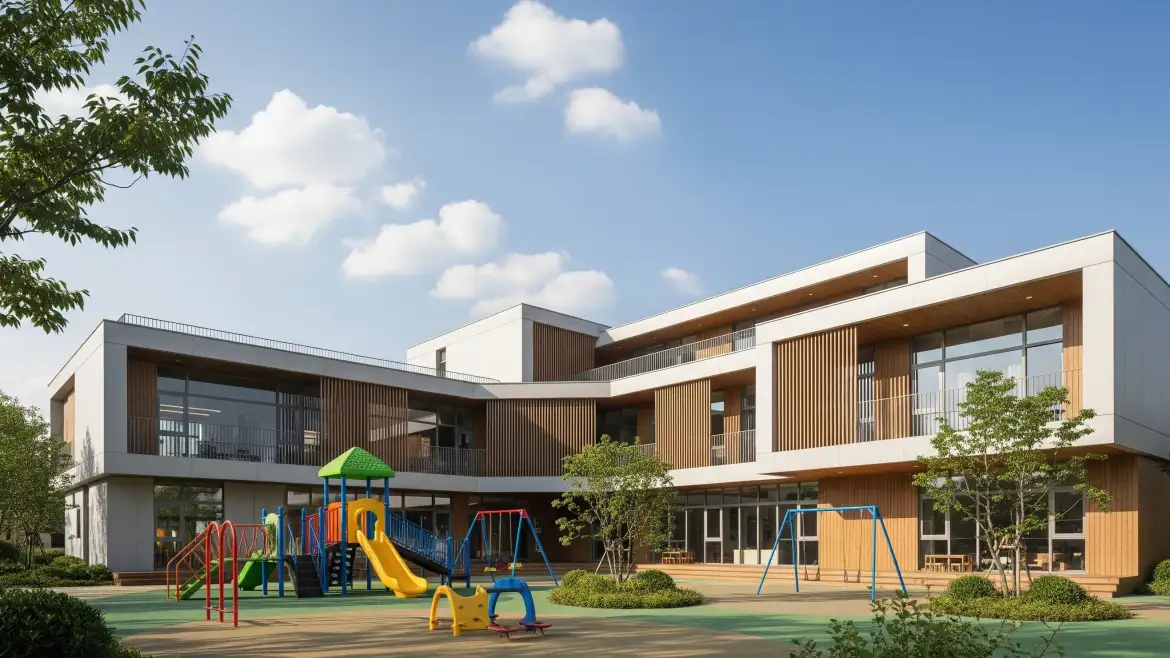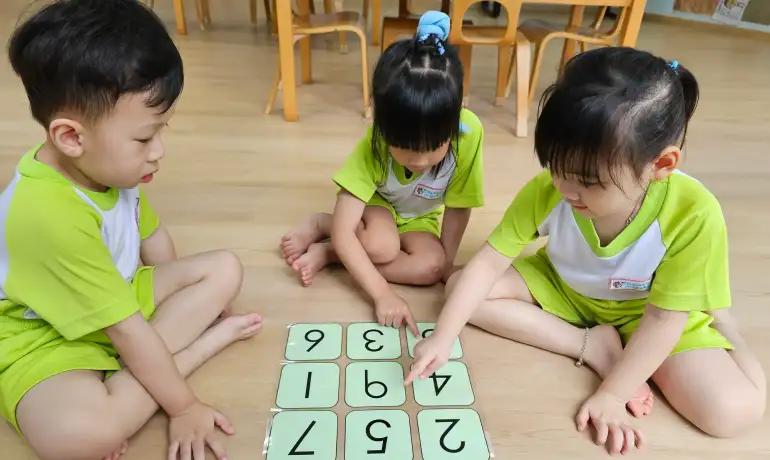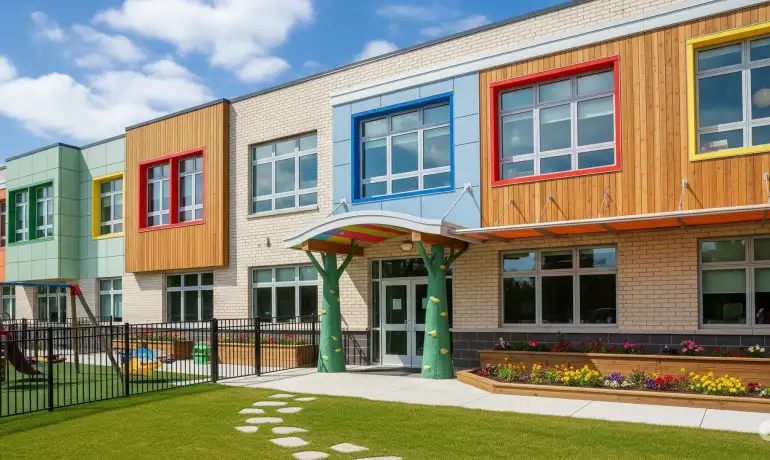Pre school education is more than just a place for young children to socialize and learn the basics. It’s a critical foundation for their future success in school and beyond. While many parents are familiar with the benefits of pre school, there are several important aspects that often go unnoticed. From different teaching methods to the psychological benefits of early education, it’s important to consider all factors when choosing the best pre school for your child.
In this article, we will explore seven crucial factors about pre school education that are frequently overlooked, offering insights that every parent should know.
1. Different Teaching Methods in Pre School
When choosing a pre school, one of the most important decisions is understanding the teaching methods used. Each pre school may offer a unique approach, and knowing the differences can help you choose the one that aligns best with your child’s learning style.
Montessori Approach
The Montessori method encourages child-led learning, where children explore topics at their own pace. This approach fosters independence and critical thinking. Children learn through hands-on activities that encourage problem-solving and creativity.
Reggio Emilia Approach
This approach focuses on creativity and collaboration. Children are encouraged to express their ideas through various mediums such as art, music, and movement. It views the classroom as a “third teacher” alongside the children and educators, promoting interactive learning.
Waldorf Education
Waldorf education integrates arts and academics to nurture creativity, imagination, and emotional development. Through storytelling, music, and hands-on activities, children develop a love for learning and a deeper connection to the world around them.
Why These Methods Matter
Understanding the teaching methods can help you choose the best fit for your child. Some children thrive in structured environments, while others benefit from more creative, explorative approaches. By learning about these methods, parents can ensure that their child is placed in a pre school that matches their learning preferences.
2. The Role of Parents in Pre School Education
Parents play a pivotal role in their child’s pre school experience. While teachers are there to guide learning, parents can significantly enhance their child’s development through active involvement and support.
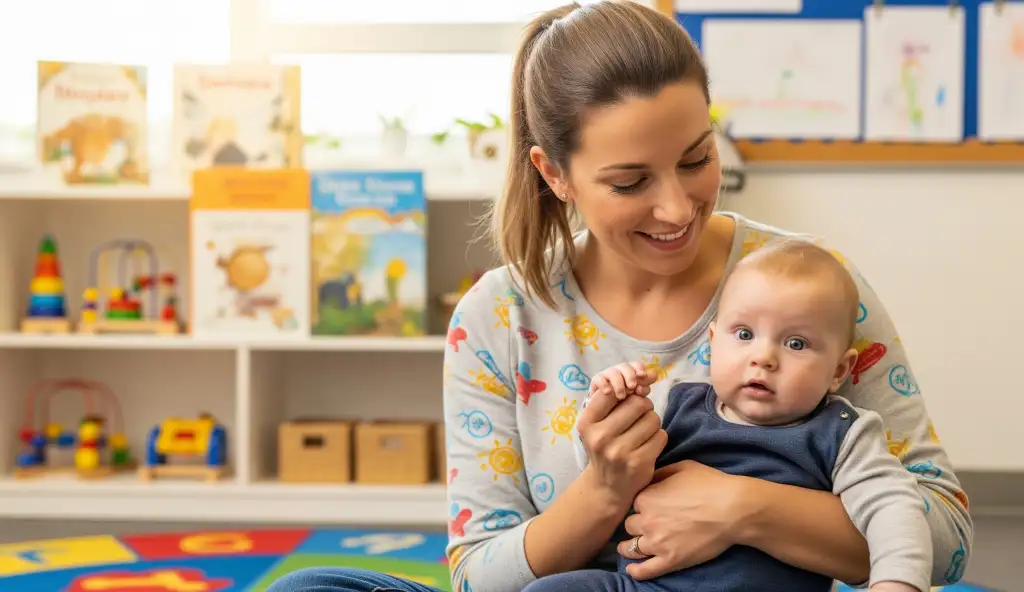
Collaborative Approach
Maintaining regular communication with your child’s teachers ensures that you are aligned in supporting your child’s educational journey. Parents and teachers working together can create a consistent and nurturing environment for the child.
Active Participation
Parents can reinforce learning at home by reading together, practicing simple math or vocabulary, and engaging in educational play. This helps strengthen the skills being developed in pre school.
Supporting Emotional Growth
Pre school is a child’s first introduction to social interactions outside of the family. Parents can help children adjust by discussing feelings, teaching social skills, and fostering emotional resilience.
3. Preparing Children for the Transition to Primary School
Pre school is not just about learning the basics; it’s also about preparing children for primary school. The transition can be overwhelming, but pre school helps children build the skills they need to succeed.
Fostering Independence
Pre school teaches children to take care of their own needs, from dressing themselves to following instructions. This independence is vital for success in primary school, where children must manage their own responsibilities.
Building Academic Foundations
In pre school, children are introduced to basic math, literacy, and problem-solving skills. These foundational concepts are built upon in primary school, making the transition smoother.
Social Skills and Peer Interaction
Pre school is often the first place where children interact with peers outside the family. They learn how to share, cooperate, and solve problems, essential skills that will help them in primary school.
4. Private vs. Public Pre School Programs
Choosing between private and public pre school programs is a common dilemma for parents. Both options have advantages, but there are key differences that should be considered.
Private Pre Schools
Private pre schools often have smaller class sizes and more flexible curriculums. These schools might offer specialized programs like Montessori or Reggio Emilia, and they can provide a more individualized learning experience.
Public Pre Schools
Public pre schools are typically more affordable and are often funded by the government. While they may offer a standardized curriculum, they still provide essential academic and social experiences for children, particularly for families who might not have the financial means for private education.
Which One is Right for Your Child?
The choice depends on your child’s needs and your family’s situation. Private preschools offer more customization but at a higher cost, while public preschools are more affordable and accessible. Understanding what each option provides can help you make the best decision.
5. The Long-Term Psychological Benefits of Pre School Education
Pre school education has lasting effects on a child’s mental and emotional development, which are just as important as academic learning.
Building Confidence
When children experience success in a safe, supportive pre school environment, they build confidence in their abilities. This confidence translates into a positive attitude toward learning and challenges later in life.
Emotional Intelligence
Pre school helps children develop emotional intelligence by teaching them how to express their feelings, regulate emotions, and empathize with others. These skills are crucial for forming healthy relationships in school and life.
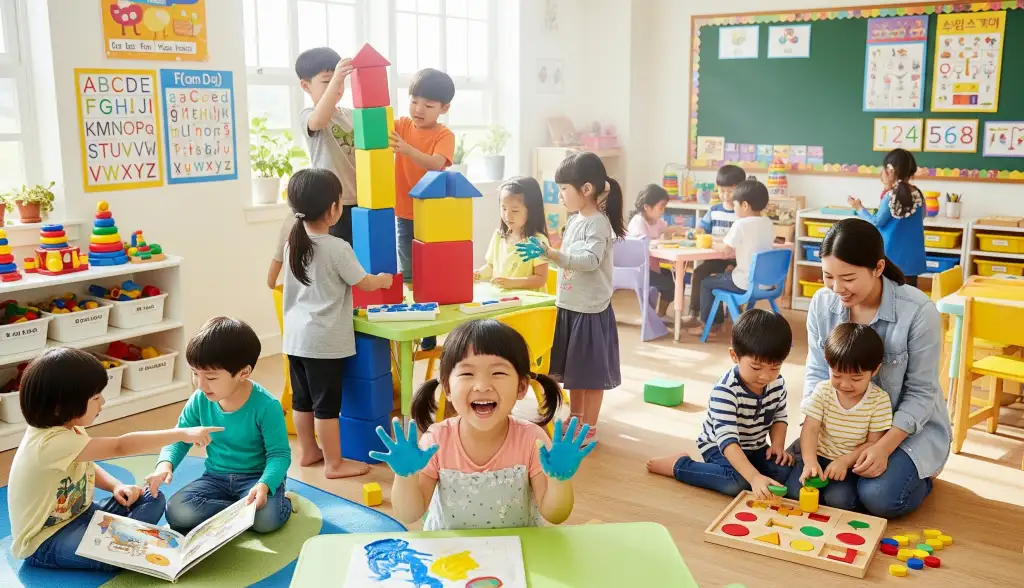
Fostering a Love for Learning
Children who attend pre school often develop a lifelong love for learning. The positive experiences they have in pre school set the stage for continued success in school and beyond.
6. Equality of Access to Preschool Education
Not all children have equal access to preschool education, which can affect their overall development. Many families face barriers such as affordability, location, or availability of programs.
Challenges in Rural Areas
Children in rural or underserved areas may have limited access to quality preschool education. In some cases, there may be no nearby preschool options, or the available programs may lack the resources needed to provide an enriched experience.
Government Initiatives
Governments around the world are working to improve access to preschool education through funding and policy initiatives. Subsidies for low-income families and universal preschool programs aim to make education accessible for all children.
What Parents Can Do
Parents can advocate for better preschool access in their communities by supporting local initiatives, seeking out government programs, or participating in educational advocacy.
7. The Funding and Resources Behind Preschool Education
The quality of preschool education often depends on the resources available. Adequate funding allows preschools to provide a rich learning environment with qualified teachers, materials, and facilities.
How Funding Affects Quality
Preschools that are well-funded can offer smaller class sizes, better teaching materials, and more opportunities for professional development for staff. Conversely, underfunded programs may struggle to provide these essential resources.
Government vs. Private Funding
Public preschools are funded by the government and are typically more affordable. Private preschools are funded by tuition fees and can offer more specialized programs but come with higher costs.
Ensuring the Best for Your Child
When choosing a preschool, consider its funding and resources. Well-funded programs tend to provide a higher quality of education, and smaller class sizes often lead to more personalized attention.
FAQ:
Q1: How do I choose between private and public preschool?
A1: Consider your budget, your child’s learning style, and the educational approach you prefer. Private preschools often offer specialized programs, while public preschools are more affordable and provide a standardized education.
Q2: What is the Montessori approach?
A2: The Montessori method focuses on child-led learning, where children explore topics at their own pace and learn through hands-on activities. It promotes independence and critical thinking.
Q3: Can pre school education really make a difference in my child’s future?
A3: Yes, research shows that children who attend preschool tend to perform better academically and socially throughout their lives. Early childhood education provides a solid foundation for lifelong learning.
Q4: How can I get involved in my child’s preschool education?
A4: Maintain communication with teachers, participate in classroom activities when possible, and reinforce learning at home through reading, games, and discussions.
Conclusion
Choosing the right preschool for your child is one of the most important decisions you’ll make. Understanding the different teaching methods, the role of parents, the psychological benefits, and the funding behind preschool education can help ensure your child has the best start in life.
If you’re looking for a preschool in Singapore, Little Unicorn Preschool offers a nurturing and enriching environment. Check out our Must-Visit Preschool in Singapore for more information, or explore our Preschool Search Portal to make the best choice for your child.

Contact us today to learn more about how we can support your child’s early education journey!

